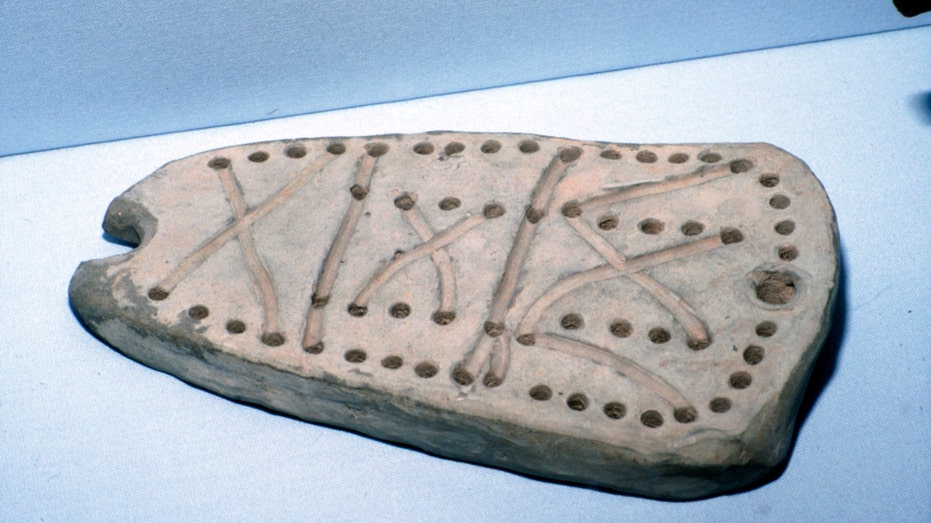Board games have long been a favored pastime, even thousands of years ago.
The ancient game called “Hounds and Jackals,” also called “58 Holes,” has long been thought to have originated in Egypt.
An archaeological discovery recently published in the European Journal of Archaeology by Walter Crist and Rahman Abdullayev suggests that the game could have different origins.
ANCIENT PLANT LIFE UNEARTHED IN 53-MILLION-YEAR-OLD FOREST IN TASMANIA
Boards have been found spread across Egypt, the Levant, Mesopotamia, Iran and Anatolia, the study notes.
The game is played on a board covered in holes meant for the peg-shaped pieces. Players must navigate their way along the board, which is constructed of two parallel lines of tiny holes and an arc of 38 holes around them.
The player who reaches the end first is declared the winner. The ancient board game operates similarly to the far more modern game “Chutes and Ladders.”
ARCHAEOLOGISTS DISCOVER UNIQUE ARTWORK IN ENGLAND DATING BACK TO THE EARLY 2ND CENTURY
The new study explains that six boards were found at several different archaeological sites in modern-day Azerbaijan.
One board each was found at Çapmalı, Yenı Türkan and Dübəndi, while three boards were found at Ağdaşdüzü, per the study.
“Six boards bearing this game’s distinct pattern were found at sites on the Abşeron Peninsula and Gobustan Reserve in Azerbaijan. Their presence there not only indicates that the region was connected to societies to the south, but also demonstrates the game’s popularity across cultures and socioeconomic groups. Its supposed first appearance in Egypt is questioned in favour of a south-western Asian origin,” the study notes.
“While much attention has focused on the origin, typology, layout, and potential rules of the fifty-eight holes game and boards, less attention has been paid to the cultural processes that influence the transmission of games between regions,” the study further explains.
FOSSILS DATING BACK 9 MILLION YEARS UNEARTHED DURING CONSTRUCTION AT HIGH SCHOOL
The findings of these ancient boards suggest that the origins of the game could lie in southwestern Asia, dating back to the late third, early second millennium B.C.
Additionally, “the Abşeron Peninsula’s connection to exchange networks suggests that the game of fifty-eight holes spread through trade rather than conquest,” the study states.
“Whatever the origin of the game of fifty-eight holes, it was quickly adopted and played by a wide variety of people, from the nobility of Middle Kingdom Egypt to the cattle herders of the Caucasus, and from the Old Assyrian traders in Anatolia to the workers who built Middle Kingdom pyramids,” the study further states.
While this finding makes a strong case about the game’s origins, the study acknowledges that more evidence is needed to fully understand where the game got its start.
